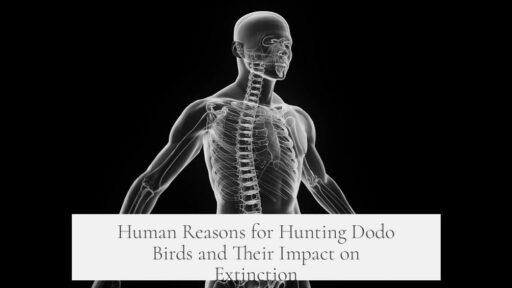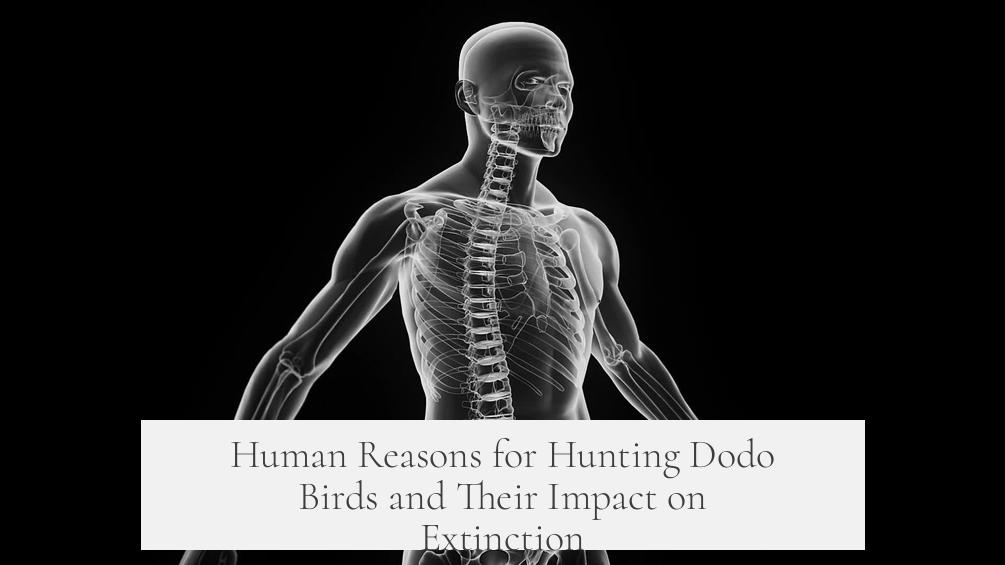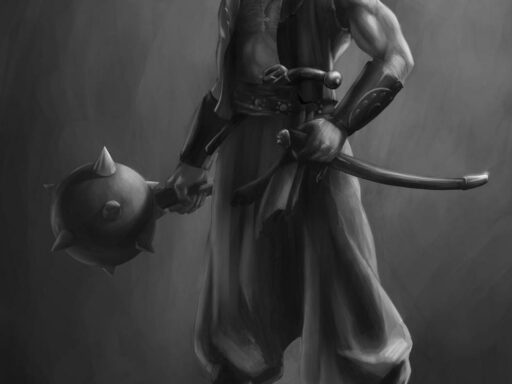The human reason for hunting dodo birds was primarily for food during early encounters on Mauritius. The Dutch sailors of the late 16th and early 17th centuries captured dodos as an easy meal while on stopovers en route to Asia. However, hunting was not the main cause of their extinction.
When the Dutch discovered Mauritius in 1598, dodos were abundant and showed no fear of humans. This made them simple prey. Early sailors relied on the dodo as a convenient, fresh food source. The bird’s large size and inexperience with predators contributed to its quick exploitation.
By 1638, however, dodos had become rare. At that time, the Dutch established a permanent settlement on Mauritius. With the dodo population dwindling, settlers shifted their food sourcing efforts to feral goats and pigs introduced to the island.
Hunting certainly reduced their numbers, but it played a secondary role in their extinction. The primary cause lies in ecological changes caused by introduced species. Rats, pigs, and other invasive animals preyed on dodo eggs and chicks. The dodo had no evolutionary adaptations to defend against these new threats, intensifying their decline.
Evidence supporting this includes the survival of last dodos on isolated islets free from these introduced predators. This detail indicates that human hunting was less significant than habitat disruption and predation by non-native animals.
The final confirmed sighting of dodos occurred in 1662. It involved shipwrecked sailors who found the birds on a remote islet. These sailors possibly hunted the remaining individuals, contributing to the bird’s ultimate disappearance.
| Aspect | Details |
|---|---|
| Main Human Motivation | Food source during early Dutch voyages |
| Shift in Hunting | Declined after dodos became rare; focus moved to feral animals |
| Primary Extinction Cause | Introduced invasive species predating nests and chicks |
| Last Recorded Sightings | 1662 by shipwrecked sailors on off-shore islet |
- Humans initially hunted dodos for food.
- Hunting decreased as dodos became rare and other animals were introduced.
- Introduced species were the main extinction drivers, not hunting alone.
- Final dodos survived on predator-free islets until the mid-1600s.
Why Did Humans Hunt Dodo Birds? The Real Story Behind a Flightless Giant’s Demise
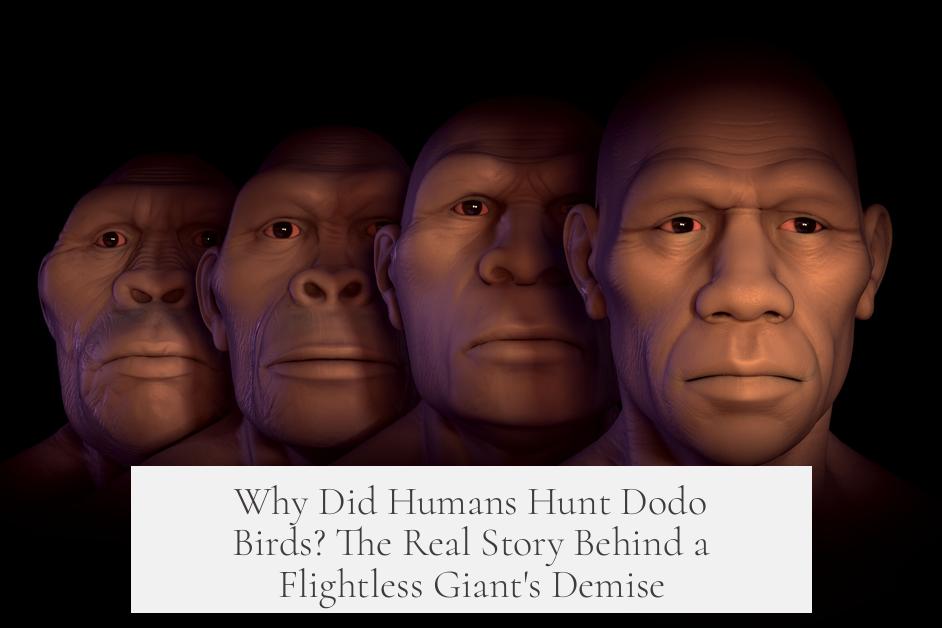
Humans hunted dodo birds primarily for food, targeting an easy meal on the newly discovered island of Mauritius. This pursuit played a role in their extinction, but it wasn’t the whole story. Let’s unravel the curious case of the dodo and the humans who hunted it.
Imagine arriving on an island with no predators, where enormous, clumsy birds roam freely. Wouldn’t you grab a quick snack? That’s essentially what happened when Dutch sailors found Mauritius in 1598. The dodo, a large flightless bird, was their go-to buffet.
The Early Days: Dodos as the Perfect Meal
When Dutch sailors first landed on Mauritius, they needed fresh provisions for their long trip to Asia. Feral animals hadn’t yet established themselves on the island. Dodos were everywhere and, frankly, super easy to catch because they had no fear of people.
Unlike today’s wary wildlife, dodos were slow and curious. They waddled around, oblivious to danger. To hungry sailors, they were walking steaks. The birds’ lack of natural predators meant their survival strategy didn’t include running from humans, a fatal oversight once humans arrived.
This makes you wonder: if humans hadn’t discovered Mauritius, could dodos still be strutting around today? Maybe! But human arrival spelled trouble.
From Feast to Famine: Shifting Hunting Patterns
Here’s an interesting twist: humans didn’t keep hunting dodos heavily for long. By 1638, about 40 years after discovery, dodos had become scarce. The Dutch had established a permanent settlement on Mauritius and shifted their focus.
Feral goats and pigs—introduced accidentally or deliberately by settlers—became the new preferred food sources. These animals reproduced quickly and were easier to manage or farm. Hunting dodos suddenly lost its appeal when alternatives became plentiful.
So, hunting pressure dropped. But was this enough to save the dodo? Unfortunately, no.
Hunting Vs. Invasive Species: The Real Killers
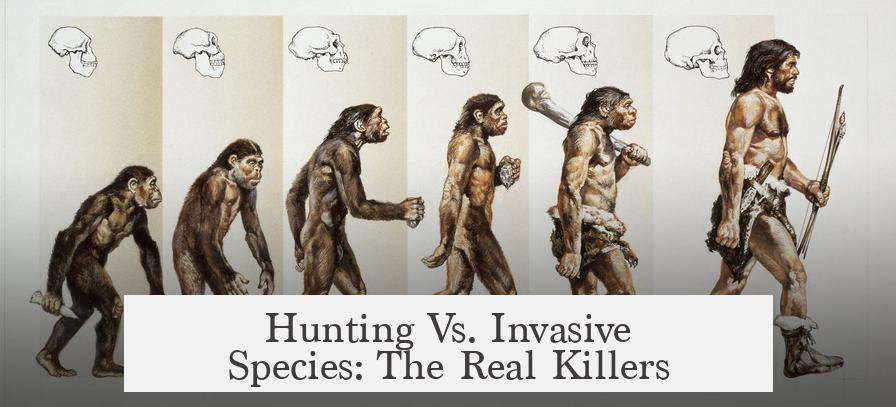
“While hunting certainly contributed, the main reason for dodo extinction was the introduction of feral species.”
—Anthony Cheke, recent dodo research expert
This quote cuts to the heart of the matter. Humans killed dodos, sure, but their biggest harm was unwittingly bringing new animals to Mauritius.
Rats and pigs, in particular, were the dodo’s worst enemies. These newcomers raided nests and devoured eggs and chicks. Dodos had evolved without predators, so they never developed defenses against such threats.
In fact, the last dodos clung to survival on a tiny islet just off Mauritius, where these feral species hadn’t yet invaded. This detail strongly suggests that the invasive animals, not direct human hunting, were the primary extinction cause.
Last Sightings and the Final Blow
The dodo’s dramatic exit came in 1662. That’s when shipwrecked sailors made the last known sighting. They found small groups of dodos living on that remote islet. Ironically, these survivors might have been killed by the sailors themselves, sealing the bird’s fate.
This raises questions: Was it human greed? Pure chance? Or just a tragic twist of history? Sailors stranded and desperate had few options but to hunt what they needed to survive—sometimes the dodos themselves.
Lessons from the Dodo’s Downfall
The story of the dodo teaches us a clear message: ecosystems are delicate. One new species can change everything.
The dodo’s extinction wasn’t just caused by human hunting. Instead, it was a domino effect triggered by humans bringing foreign animals to an isolated paradise. Rats and pigs exploited the dodo’s weaknesses faster than humans hunted the birds.
We often blame hunting for species loss, but the dodo’s fate is a reminder to consider the broader environmental impacts of our actions.
Could We Have Saved the Dodo?

Probably not, given the lack of conservation awareness back then. But today, this story fuels better strategies to protect endangered species. We understand that protecting habitats means managing invaders as much as controlling hunting.
Next time you hear “dodos were killed by humans,” ask yourself: Were humans the hunters, or the ultimate disruptors?
A Quick Recap
- Humans first hunted dodos for meat on Mauritius in 1598. Dodos were easy targets due to lack of fear.
- By 1638, dodos became rare, and humans switched to feral goats and pigs.
- The main extinction driver was invasive species like rats and pigs eating dodo eggs and chicks.
- Last sightings were in 1662 on an isolated islet, where shipwrecked sailors possibly killed the last dodos.
Curious to Read More?
For those craving deeper insight, Anthony Cheke’s latest research (The Dodo and the Red Hen, A Saga of Extinction, Misunderstanding, and Name Transfer) paints a full and fascinating picture of this extinction saga. Highly recommended reading if you want to dive beyond the myths.
So next time someone talks about the dodo’s downfall, remember: it’s not just about human greed or blunt hunting. It’s a complex tale of survival, invasion, and ecological imbalance—one with vivid lessons for conserving our wild world today.
